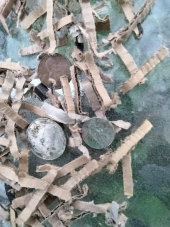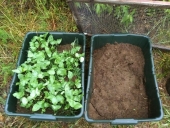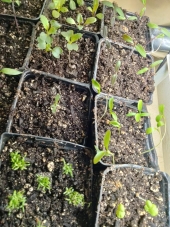
 3
3




 1
1




 3
3




Invasive plants are Earth's way of insisting we notice her medicines. Stephen Herrod Buhner
Everyone learns what works by learning what doesn't work. Stephen Herrod Buhner
 2
2




Anne Miller wrote:I am not a fan of starting seeds in pots.
I have the best luck starting seeds outside in their natural environment.
Yes, what seeds actually need is warmth, nutrients, water, sunlight, etc. so is it ridiculous to just use like naked soil from the land that has been modified with compost?
Again, this conforms with planting the seeds outdoor after the last sign of frost.
 2
2





 2
2




Weeds are just plants with enough surplus will to live to withstand normal levels of gardening!--Alexandra Petri

 3
3




 4
4




Visit Redhawk's soil series: https://permies.com/wiki/redhawk-soil
How permies.com works: https://permies.com/wiki/34193/permies-works-links-threads
 1
1





 2
2




“We can complain because rose bushes have thorns, or rejoice because thorn bushes have roses.” — Abraham Lincoln

| I agree. Here's the link: http://stoves2.com |





